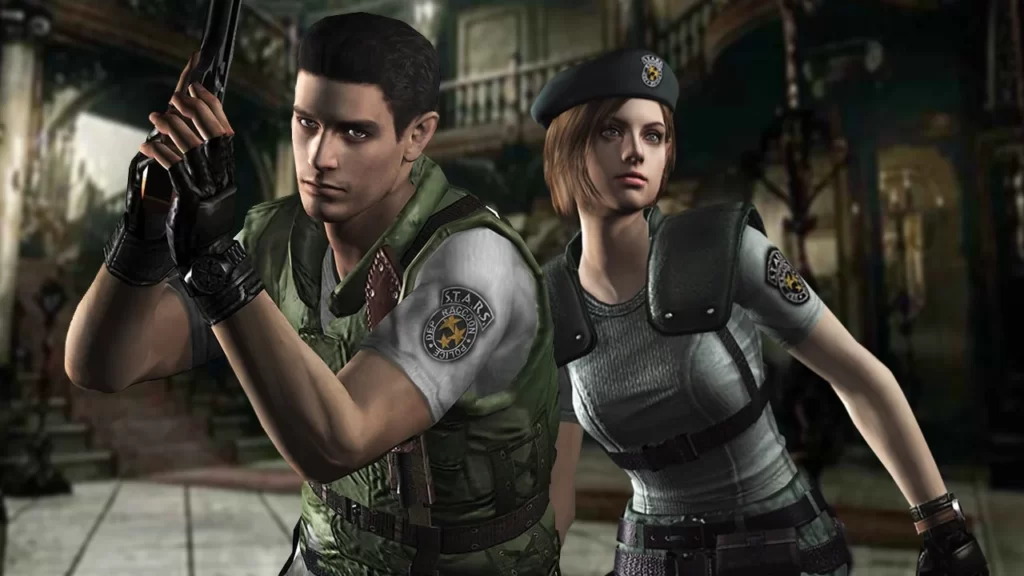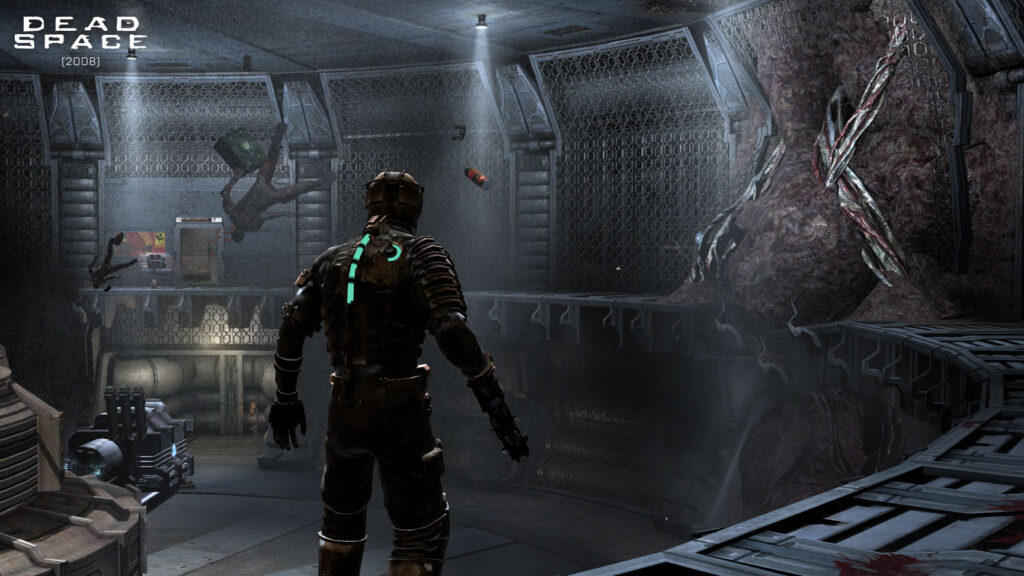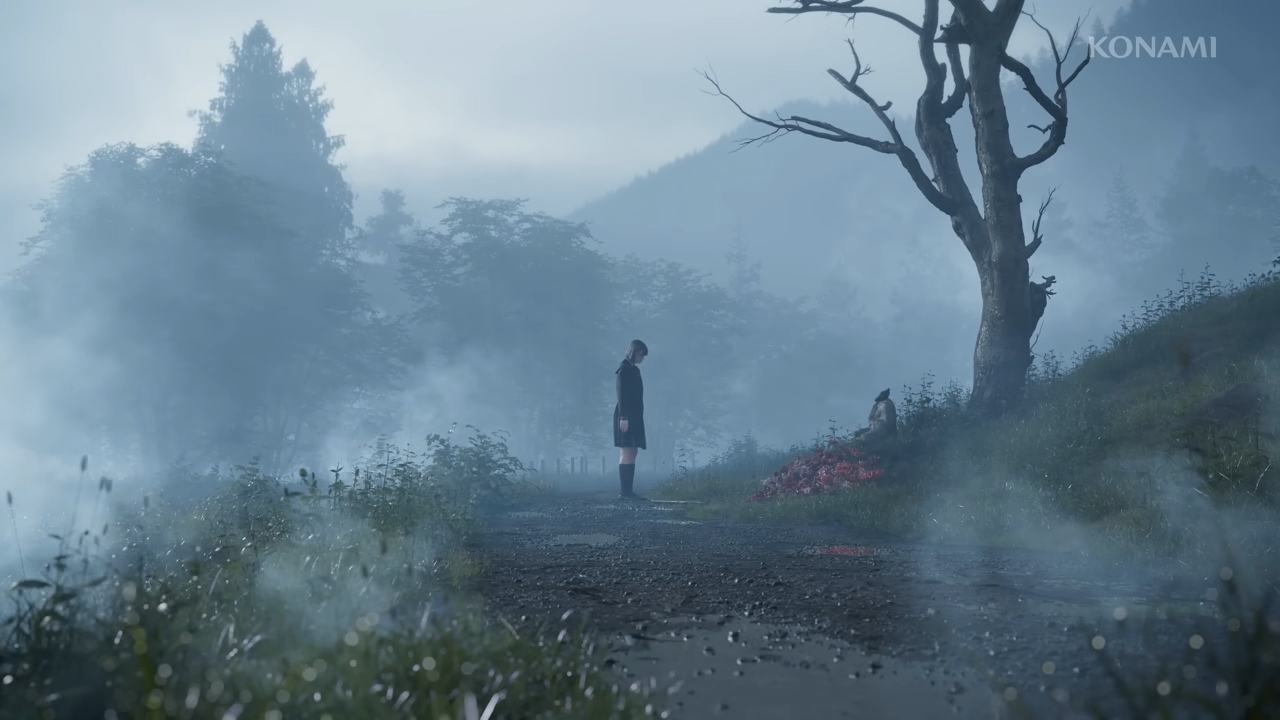The dawn of the 21st century marked a transformative era in the realm of video games. The convergence of cutting-edge technology and unprecedented graphics beckoned game developers and indie creators to embark on journeys filled with novel narratives and innovative concepts. This transformation was particularly profound in the horror genre, where the fusion of perplexity and burstiness birthed tales that continue to haunt gamers to this day. Delve into the enigmatic world of the Y2k decade’s most exceptional horror games.
Exploring the Uncommon: The Top Horror Games of the 2000s
Resident Evil (2002)

“Resident Evil,” a third-person survival horror masterpiece, plunges players into a labyrinthine gothic mansion and its eerie environs. In this heart-pounding adventure, gamers grapple with intricate puzzles while contending with grotesque adversaries like colossal arachnids and reanimated cadavers.
The game’s fast-paced gameplay, coupled with its morbidly captivating character designs and haunting backgrounds, endows the inaugural entry in the iconic Resident Evil series with the timeless allure cherished by a devoted and expansive fanbase.
Silent Hill 2 (2001)

Sequeling the acclaimed “Silent Hill” from 1999, “Silent Hill 2” thrusts players into the nightmarish labyrinth of Silent Hill, where the franchise’s enduring protagonist, James Sunderland, fights for survival amid a phantasmagoric onslaught of abhorrent creatures.
The Silent Hill series has endured for over two decades, its enduring legacy extending even into contemporary times through numerous sequels and a cinematic adaptation. Amongst the evolving pantheon of Silent Hill titles, “Silent Hill 2” retains its cherished status among the most ardent aficionados.
Dead Space (2008)

“Dead Space,” a 2008 survival sci-fi horror, immerses players in the harrowing odyssey of Isaac Clarke, an engineer navigating a mining spacecraft besieged by grotesque Necromorphs. As he grapples with existential dread, players must stave off the encroaching psychosis that threatens to shatter his sanity.
Inceptionally envisioned in the early stages of 2006 by creator Glen Schofield, “Dead Space” sought to deliver a truly petrifying experience in the tradition of Resident Evil and Silent Hill. Even amidst the plethora of subsequent entries in the horror gaming landscape, “Dead Space” retains its status as a cult classic beloved by devotees of the genre.
Dead Rising (2006)
A progenitor of the zombie survival genre, “Dead Rising” from 2006 unfolds within an open-world, action-adventure horror setting, where players embody the intrepid photojournalist Frank West, ensnared within the confines of an abandoned shopping mall swarmed by hordes of the undead.
“Dressed” in a distinctive open-world, third-person format, this gameplay invites players to leisurely explore the deserted shopping precinct while scavenging for essential items. In addition to facing off against the relentless zombie menace, players must confront belligerent human adversaries infamously known as “Psychopaths.” This novel approach to horror gaming left an indelible mark during the 2000s.
Bioshock (2007)
“BioShock,” a 2007 first-person shooter, immerses gamers in an alternate 1960s history, where they embody a character named Jack as he delves into the submerged metropolis of Rapture. Conceived by the visionary entrepreneur Andrew Ryan, Rapture stands as a utopian society, ignited by the revelation of ADAM, a substance that confers superhuman abilities. Guiding Jack, players must grapple with the pursuit of escape while navigating treacherous waters teeming with ADAM-obsessed adversaries and the nightmarish behemoths known as “Big Daddies.”
“BioShock” draws inspiration from the dystopian and utopian fiction of the mid-20th century, resonating with works such as “Brave New World” and “1984.” The game also weaves the philosophies of influential 20th-century authors, including Ayn Rand, George Orwell, and Aldous Huxley, into its narrative tapestry. The overarching antagonist, Andrew Ryan, bears striking resemblance to prominent industrialists like Walt Disney and John D. Rockefeller. The depth of thought and scholarly exploration that permeate “BioShock”‘s development are unmistakable.
While the “BioShock” franchise has expanded over the years, the original 2007 release retains its status as an enduring and profoundly popular classic.
